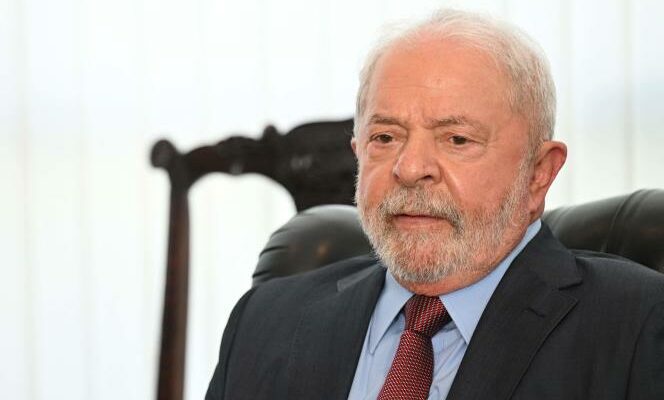Barely twenty-four hours after his inauguration ceremony in the capital, Brazil’s new president Luiz Inacio Lula da Silva, known as Lula, has begun to implement his main campaign promises.
The 77-year-old left-wing icon intends to quickly make his mark on his third term – he already led the country from 2003 to 2011 – by opposing the government of his far-right predecessor Jair Bolsonaro who left the country and missed the induction of his rival on Sunday.
By means of a decree published Monday, January 2 at the Official newspaper, Lula thus took measures to limit the use of weapons. It suspended for two months new registrations of weapons and ammunition for hunters, collectors and sport shooters (grouped under the acronym CAC). This category has seen its arsenal triple under Bolsonaro’s four years in office, to reach one million registered weapons. The new president has also set up a working group to propose new regulations for the “Statute of Disarmament” – in force since 2003 and his first government at the time – which aims to disarm civilians.
“The arms control decree seeks to end the irresponsible period of “anything goes”, incompatible with the Constitution”, assured on Twitter Flavio Dino, Minister of Justice and Public Security, who also planned a “general census of existing weapons in Brazil”.
“Buying a gun is exceptional and not the same as buying tomatoes on the street corner,” justified Mr. Dino.
The relaunch of the Fund for the Amazon
Lula also signed a series of decrees aimed at strengthening the protection of the Amazon, whose average annual deforestation has increased by 75% compared to the previous decade. The new Head of State notably instituted a “permanent interministerial commission for the prevention and control of deforestation”, while deciding to reactivate the Fund for the Amazon, created in 2008 to collect donations for investments in the forest for its preservation. This had been frozen since 2019 due to differences over the destination of the funds between Norway and Germany, the main donors, and the Bolsonaro government. These two countries have expressed their intention to top it up again.
Lula also revoked a decree authorizing mining in indigenous areas and environmentally protected areas.
Lula also stopped the process launched under Bolsonaro to privatize eight public companies, including the oil company Petrobras and the Brazilian post office. He warned during the campaign that he did not want any privatization of public groups.
Help for the poorest families
On Sunday, in the middle of the inauguration ceremony, the new president also signed a decree aimed at extending the popular program Bolsa Familia, which grants 600 reais, or approximately 111 euros per month, to the poorest families. It is a campaign promise made after a painstaking negotiation with Parliament in December 2022 so that the program can escape the cap on public spending.
Lula also signed an increase in the minimum wage from 1,212 reais to 1,320 reais (around 245 euros), a decision which had not yet been published on Monday, however. Official newspaper.
Test your general knowledge with the writing of the “World”
Discover
Some 125 million Brazilians out of the country’s 215 million suffer from food insecurity, and 30 million from hunger.
The president also ordered a review, within thirty days, of the many decisions taken by his predecessor Jair Bolsonaro to impose confidentiality on information and documents from the administration. The former head of state has repeatedly decreed the confidentiality of public documents for a hundred years in order to prohibit access to them, such as those concerning his vaccinations or his visits to the former first lady, Michelle Bolsonaro.
Lula finally ordered the general secretariat of the presidency to work on the creation of a new program called “Pro Catador” which promotes and improves the working conditions of garbage collectors.
